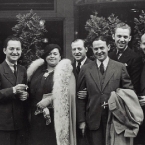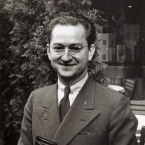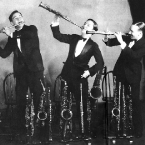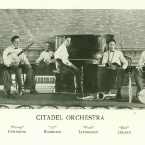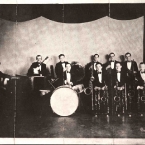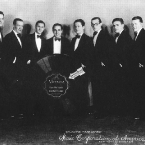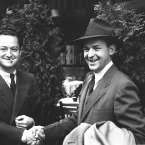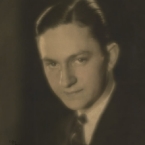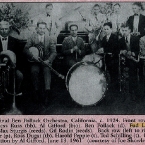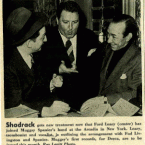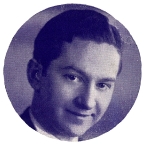Livingston, “Fud” Joseph Anthony (1906-1957)
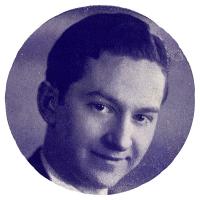
A native of Charleston, Livingston was a songwriter and professional musician who played accordion and piano in his early years, and later worked as a reed man (saxophone and clarinet); in Charleston, he attended The Citadel briefly and followed his brother Walter (called “Toots” who played for Ted Weems and roomed with Bing Crosby) into the itinerant world of jazz and dance bands; between 1923 and 1927, Livingston worked as a reed man with Tal Henry in Greensboro, NC, Ben Pollack in California, the California Ramblers, Jean Goldkette; in the fall of 1927 and for several years, he became a primary arranger for big bands in New York including those of Nat Shilkret, Don Voorhees, and Jan Garber; after another brief stint with Pollack, he went to London in March 1929 and worked with Fred Elizalde at the Savoy Hotel; he returned to New York later that year, and freelanced until June 1930, when he joined Paul Whiteman; in 1931, he produced, along with Matt Malneck, what would become perhaps his most durable composition: the music for the hit ballad, “I’m Through with Love”; Livingston remained with Whiteman as sideman and arranger until 1933, also arranging for Pollack and Al Goodman during these years; in 1935, he began two years of full-time performing with the Jimmy Dorsey band while also working as an arranger from 1935-1940 for Benny Goodman, Bing Crosby, Andre Kostelanetz, Fred Rich, Frankie Trumbauer, Bob Zurke, and Pinky Tomlin; in the 1940s, Livingston went to Hollywood and did arranging for movies and radio; among Livington’s compositions are “Feelin’ No Pain,” “Humpty Dumpty,” “Harlem Twist,” “Au Rest,” “Inside on the Southside,” “Lorraine,” “Without a Penny in Your Pocket,” “Pasa ‘Qui Ba-Bee,” “Any Old Time,” and “There You Go”; of special interest to South Carolinians is the musical collaboration with his friend Robert S. Cathcart, Jr., also of Charleston; together, they wrote several popular ballads relating to their hometown — “Easter Bells” and “Springtime in Charleston”; one of Livingston’s compositions, “Bullally,” has Gullah roots; he can also be heard on several long-playing records with the Charleston Chasers in the Vintage Jazz Mart series (English), on Columbia’s 1966 three-record volume, Thesaurus of Classic Jazz, and with Ben Pollack on a couple of Victor reissues; among the recordings of Livingston’s own compositions, Charlie Spivak’s 1948 rendition of “Springtime in Charleston” is notable; Livingston was married to Evelyn Gaffield of Chicago; he spent his last years working occasionally as a pianist in New York City bars and died in New York on March 25, 1957.
Image Gallery
Selected Albums

